Mu Performing Arts' Lost and Found Middle Brother
In November 2012 I attended a staged reading of Eric Sharp’s first play, Middle Brother. Mu Performing Arts committed to producing Middle Brother this year, as their 46th Asian American World Premiere. As a result, Sharp got an additional year to develop the script before production. When I saw that Mu was kicking of their 23rd season with Middle Brother, I was excited to see the script I heard years ago come fully to life.
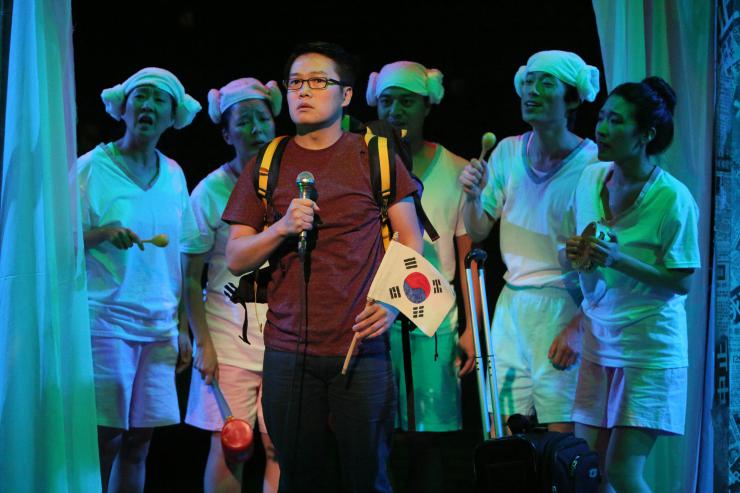
Staged at the Southern Theater under the imaginative direction of Bob Rosen, former co-artistic director of Theatre de la Jeune Lune, Middle Brother tells the story of Billy, a Korean adoptee modeled after playwright Sharp (who also performed the role), as he journeys to Korea in search of his roots. Before the play starts, a chorus enters the house, chatting as if at a Korean bathhouse. The group then addresses the audience, delivering the pre-show speech in Korean accented English.
According to the program note, from 1953-2012, 112,608 children were adopted from Korea.
The chorus draws a Korean word in chalk on the floor stage right. They scold the audience for not being able to read Korean and then write the English word for Korea beneath it in parenthesis. Next, they do the same for Iowa on stage left, and finally separate the two with a blue squiggly ocean chalk line. This definition of space serves as a simple, elegant metaphor to establish the cultural divide that becomes the foundation of the play.
We follow Billy as he travels between Iowa and Korea (staged with a rolling cart cast as an airplane), while feeling not from either place. In Korea, Billy struggles with Mrs. Parks (a hilarious Sarah Ochs), a representative at his adoption agency. The show really shines when it embraces its own humor. Mrs. Parks, a cartoon-like symbol of bureaucracy, delivers some poignant one-liners that almost sugar coat her incompetence.
Billy searches for tangible proof of his origin—baby photos, information about his birth parents, anything that confirms his forgotten past. The smiley but hardly helpful Mrs. Parks eventually connects Billy to his biological older brother. Complaining about her increased workload, Mrs. Parks remarks, “We never thought you would all want to come back.”
Billy’s older, more “bad-ass” brother Hyung (Sherwin Resurreccion), and Billy begin spending time together. This coming together is juxtaposed with Billy growing apart from his younger, also adopted Korean brother, Gabe (Michael Sung-Ho). Gabe can’t seem to hold down a job, and actively avoids a return to the Korean “homeland” even when Billy offers to pay his way. Billy’s conversations with his brothers happen in-person, over the phone, and sometimes via letters (when one of them folds a piece of paper into a plane and flies it over the ocean while reading the text).
The dramatic tension of the play hinges on Billy’s search for self, his conflict with Gabe over embracing their homeland, and his new relationship with his birth brother Hyung, the only person we meet who can answer why Billy was given up for adoption in the first place.
The most drastic change to the script since the staged reading I heard was how a fable factored in to the story. In the staged reading, a heart broken Billy mourns his own absence in his birth brother’s family photos. The scene then cut to a fable about two crowned princes who were born during the Joseon dynasty, one of whom was lost. The abrupt tonal and historical departure served as a deeper manifestation of Billy’s search for self. In the final production, the fable is fractured and expanded, interwoven in the show. We see Billy in Korea, then a scene from the fable, then a flashback to Billy as a small child first arriving in America, and so on.
At the end of the play, the lost prince returns home and the Queen, his mother, welcomes him back to the court, invites him to take his rightful place, and asks him to tell her of his journey. However, the lost prince (also played by Sharp) is unable to recount his story, or even understand what the Queen is asking. He replies, “I am American. I am very sorry, I don’t speak Korean,” and the Queen’s lamentation fills the space.
During the talkback, an audience member asked how much of the story was Sharp’s own, and how much was fictional. While Sharp didn’t answer really specifically, he did say that as the play was developed, more and more of the personal was extracted.
Many of the show’s actors are Korean adoptees. They interpret the final scene as Korea’s acknowledgement of the loss of its children (a dimension that is often missing from adoptee narratives). According to the program note, from 1953-2012, 112,608 children were adopted from Korea.
The night I saw the show, members of Gazillion Voices, a magazine for adoptees, were also in attendance. At the talk back, a Korean adoptee in the audience revealed,
I didn’t want to come tonight because this is such a close issue to my heart. I didn’t want to sit in an audience with non-Korean adoptees who might laugh at something that is so personal and painful to me.
Sharp replied that he wrote Middle Brother for other adoptees. Though I am not from this community, I could easily relate to this story. I am grateful for Mu Performing Arts' vital work staging stories that resonate both within their community, and beyond.

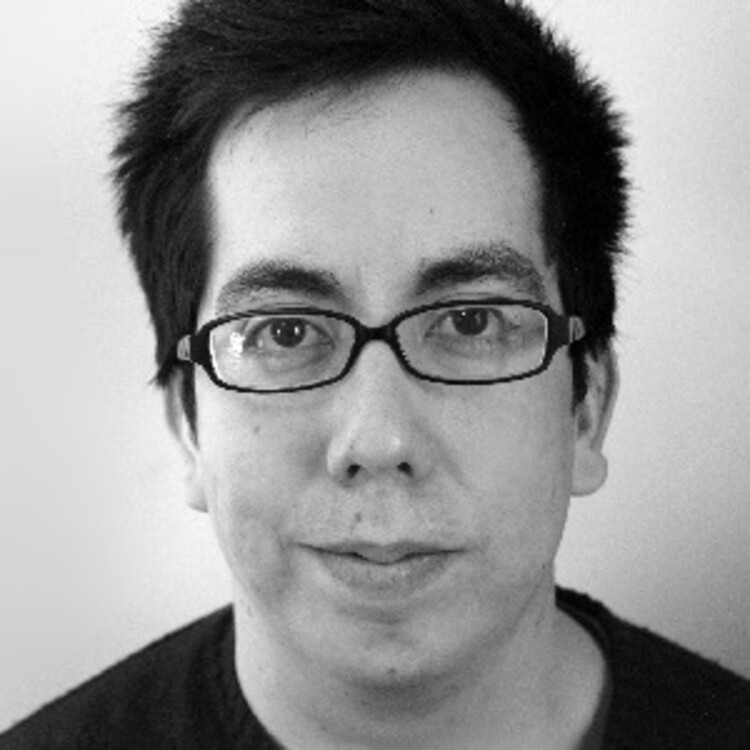
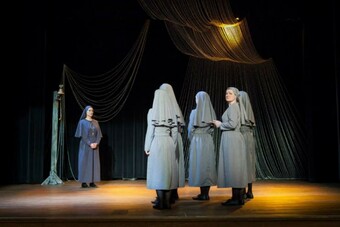

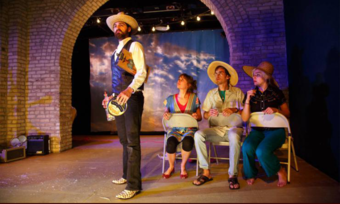
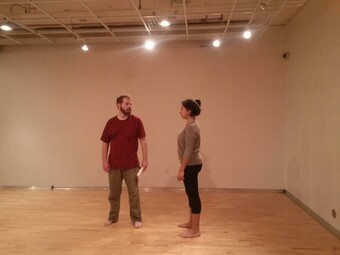
Comments
The article is just the start of the conversation—we want to know what you think about this subject, too! HowlRound is a space for knowledge-sharing, and we welcome spirited, thoughtful, and on-topic dialogue. Find our full comments policy here